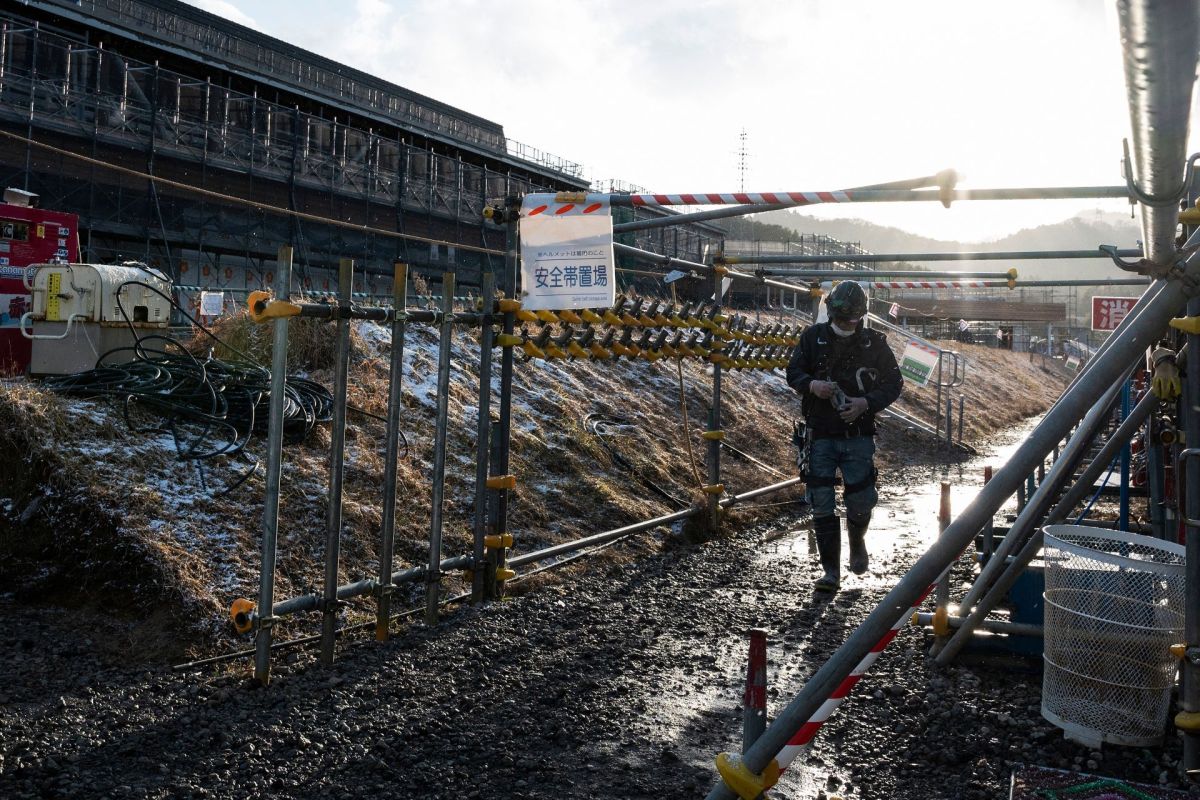Japan is planning to release potentially more than 1 million tons of filtered and diluted radioactive wastewater into the ocean, which has neighboring countries and environmentalists worried.
What's happening?
Japan is set to start releasing treated radioactive water from its Fukushima nuclear power plant into the sea this summer.
In 2011, a magnitude 9.0 earthquake and tsunami triggered a nuclear meltdown at the facility. Since then, the facility has stored the cooling water for nuclear fuel along with rain and groundwater that has been seeping through the damaged reactor building.
Because storage capacity is running out, Japan decided to release 1.25 million tons of Fukushima's wastewater after filtering and diluting it.
Why is the radioactive water release concerning?
Though several experts said the filtration plan is technically sound and feasible, South Koreans — and others from neighboring countries — are worried about the potential effect on the local marine environment, including the fish and sea salt that they consume. Environmental groups and fisheries have also expressed concern, fearing the possible impact.
Japan's neighbors have reason to feel alarmed after the original disaster in 2011, which spewed radioactive material into the Pacific Ocean. The regional fishing industry was devastated due to contamination concerns.
"People are mistrustful … because it's a region where the accident happened," Choi Eunmi, a Japan specialist at the Seoul-based think tank Asan Institute, told NPR.
The South Korean government has been checking radiation levels in seafood and seawater since the 2011 disaster and vowed to oppose the impending water release if it doesn't meet regulatory standards, per NPR.
What's being done about the radioactive water?
Japan is using the Advanced Liquid Processing System (ALPS) filtering system to help clean up the water before releasing it to the sea. The country's Ministry of Economy, Trade and Industry said this process will remove all radioactive materials other than tritium. Then, it will dilute it with more than 100 times' quantity of seawater before discharging into the ocean. This will lower the concentration of tritium in the water.
"There [are] no concern[s] about effects on human health or the environment," according to the ministry's website.
But the ALPS system is not fail proof. In addition to tritium, other isotopes with longer radioactive lifetimes like ruthenium, cobalt, strontium, and plutonium occasionally slip through.
Tokyo Electric Power Co. (TEPCO) acknowledged that these nuclides are now found in 71% of the tanks at the facility. The government said the plant will repurify the water to meet regulatory standards for these nuclides.
Shigeyoshi Otosaka, a marine geochemist at the University of Tokyo, told Science.org that he is worried about the accumulation of these isotopes in seafloor sediments, where they could be absorbed by animal and plant life. While he said this possibility is limited, he told Nature, "it is important to evaluate the long-term environmental impact of these radionuclides."
A number of governments are asking Japan to reconsider the move due to concerns about the radioactivity concentration in fish.
An intergovernmental panel of 18 Pacific nations including Australia, Fiji, Papua New Guinea and French Polynesia was formed to advise on whether the release was safe for the ocean and people. The panel has visited the site and reviewed all the data from TEPCO, but one member told Nature that there are still some unanswered questions.
Join our free newsletter for cool news and cool tips that make it easy to help yourself while helping the planet.









